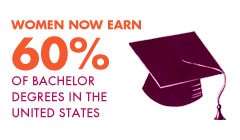
September 24, 2012 | Innovation, Economic Opportunity
Female Brazilian Farmers Pioneering Innovation
What happens when women are empowered to become more than “helpers” on the land.
ActionAid Brazil Archive
By Ashley Bush
In 2008, a significant rise in food prices threatened to tip at least 100 million people into extreme poverty. The price of corn doubled, wheat reached its highest price in 28 years, and civic unrest broke out in 33 countries due to food insecurity. As a result, farmers everywhere were encouraged to shift to an export-oriented agricultural model, producing tradable commodities rather than local food staples.
Brazil hopped on the bandwagon and soon emerged as a leading global exporter of competitive agricultural commodities, including coffee, sugar, and soybeans. The country even received accolades for transforming its farms into a strong corporate-driven agribusiness model. The Brazilian Ministry of Agriculture reported a 365% growth in crop production value since 1996. And now, roughly 80% of Brazil’s cultivated land is used for monoculture farming.
Although this model proves to drive short-term economic growth, long term—it is not sustainable. Monoculture heavily relies not only on the use of machines over direct labor but also on agrochemicals and pesticides. Farmers spend 24% of their capital on chemical fertilizers, and reports have shown that fertilizers often destroy and contaminate wild crops and natural species, essentials that can actually help farmlands in the long run. Furthermore, climate extremes are becoming more frequent and violent and, with the depletion of natural resources, farms are not as resilient.
Thirteen years ago, the non-profit organization ActionAid came to Brazil. ActionAid works in 50 countries, partnering with local organizations to eradicate poverty and the social injustices that cause it. ActionAid saw the need to support agroecology as an approach to empower farmers. In the last five years, ActionAid has emphasized the role of women as agroecology innovators.
Brazilian culture, particularly in rural areas, historically places women as subordinates to men. Women are considered “helpers”’ or merely “support,” becoming completely invisible, even in the statistics. Aligning with ActionAid’s mission, the organization set out to empower females to fight for their rights. In doing so, they saw a direct positive correlation between agroecology innovation and women’s empowerment.
Through working with rural women, Ana Paula Lopes Ferriera, the coordinator of ActionAid Brazil Women’s Rights Program, saw women as essential to building a more sustainable agribusiness in Brazil. Men generally want to use the land to grow a single crop and rely on agrochemical input. Women, on the other hand, “who are traditionally responsible for family and home care, are more concerned with diversifying the produce to assure that the family’s ends meet,” says Ferreira. “Experience shows that women are pioneers in searching for alternatives to the traditional model based on monoculture and agrochemicals.”
ActionAid promotes and empowers women on a grassroots level. The main goal is to organize the exchange and systemization of experiences led by the very women of the community. Through these local gatherings women are able to learn from each other—share struggles, strengths, and advice—and gain the self-esteem necessary to keep experimenting. One of the greatest barriers rural female farmers face is the sexist and patriarchal culture. Ferreira cited cases in which husbands and fathers would not allow women to attend community meetings. Some husbands, Ferreira reports, even destroy their wives’ agroecological experiments, preferring to keep them in more traditional roles dependent on agrochemicals.
Brazil is the largest consumer of pesticides in the world. Although many rural workers are progressively adopting the use of proper clothing to deal with pesticides, the wives are the ones who wash the clothes with no protection and are directly, along with their children, exposed to these poisonous remains. In March 2011, 7,000 Brazilian female farmers protested the use of pesticides, arguing against industrial agriculture and for sustainable alternatives.
Beyond learning innovative tips to help sustain their families, the argoecological process empowers women to face their dependency condition and conquer more rights in several spheres of life: productive, reproductive, as well as community rights. Ferreira contends, “It is vital to have a feminist perspective that may deal with denaturalizing the idea of family as the perfect institution, as well as with the condition of women’s subordination within the family.”
Vanda Fiorention, 39 years old, from Northeastern Brazil, comes from a background of poverty, disease, deprivation, and unpaid work. With the support of AS-PTA, an ActionAid partner organization in Paraiba, Fiorention learned from other farmers how to produce year-round in the semi-arid land without using pesticides or chemical fertilizers. “When I started to attend the meetings, I did not know about phytotherapy plants, seedlings, plants to feed the animals during the drought, all this new knowledge. Having a water cistern at home was like getting a new life.” Now, she proudly sells her goods in the agroecological city fair and actively contributes to the income and well-being of her family.
With the help of ActionAid Brazil and their partnership with several local organizations, women are progressively and powerfully emerging out of the ”helper” role and into productive contributor positions, and as a result, women are bettering not only their family’s lives but also the community at large.
Ashley Bush is a writer for Women in the World Foundation. She is an assistant writing aid to President Debora Spar of Barnard College, and the co-creator of the webseries Route by Route.